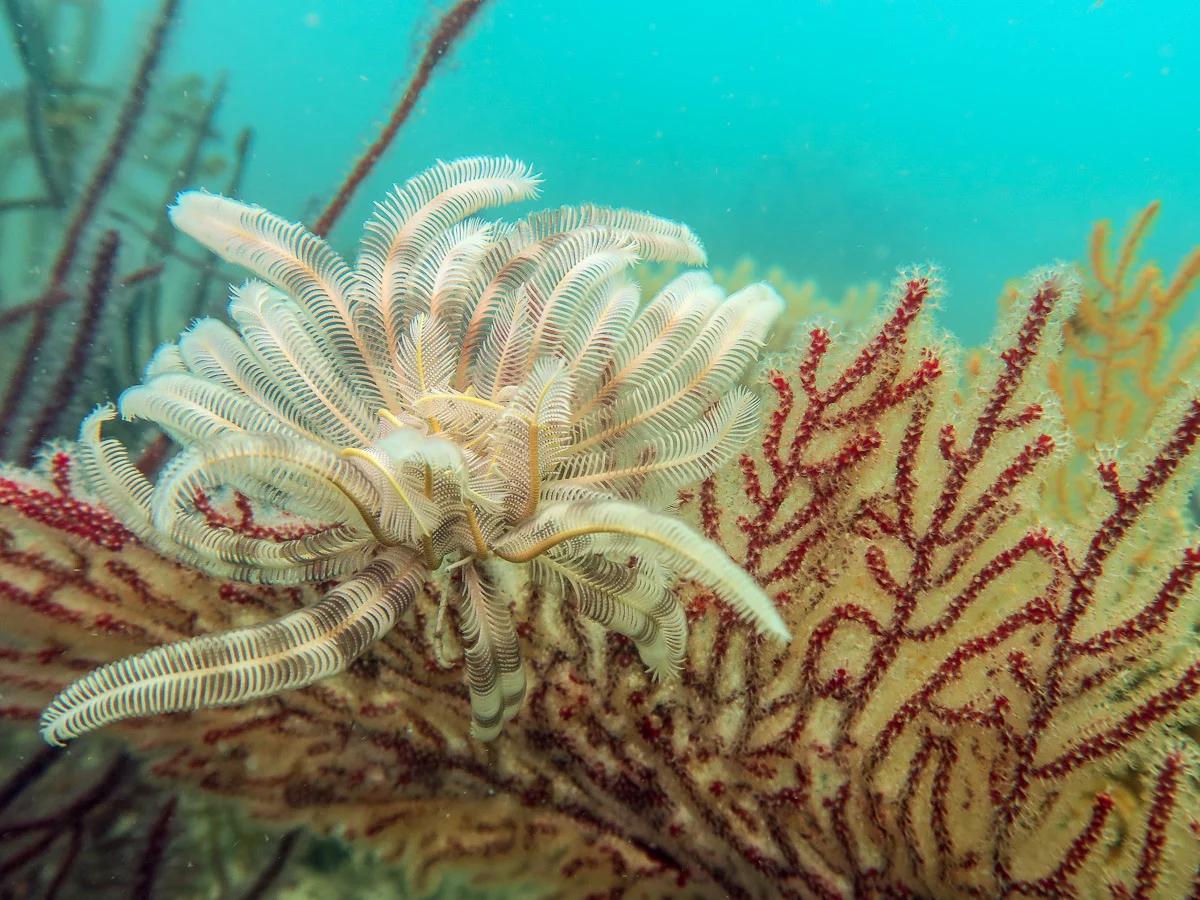All photography by Tony and Avril Ayling
Banner above: feather star or crinoid an a gorgonian fan off Yeppoon.
Most of our projects involve diving or using remote sensing to count or measure corals, fishes, seagrasses or invertebrates such as crown-of-thorns sea stars.
Our PRIMARY SKILLS
Port Dredging: Design and implementation of monitoring programs for the quantitative assessment of dredge impacts on coral reef benthic and fish communities.
Marine Resource Surveys: Design, planning, management and implementation of cost effective, statistically valid, marine resource surveys.
Environmental Impact Assessment: Design and implementation of cost effective, statistically valid, environmental impact assessment programs for marine environments.
Marine Reserves: Planning, management and assessment issues for temperate and tropical marine reserves.
Good Identification Knowledge of Marine Organisms: Expert taxonomic knowledge of tropical reef and temperate fishes, cetaceans, sharks, corals, and marine invertebrates.
Coral Relocation: Coral transplantation and relocation programs to encourage the recovery of reef hard coral populations.
Coral Surveys: Quantitative field assessment of coral reef and temperate benthic communities.
Fish and Shark Counts: Quantitative field assessment of coral reef and temperate fish and shark populations. Abundance and biomass surveys.
Seagrass Surveys: Quantitative field assessment of seagrass meadows.
ROV and Drop Camera Techniques: Quantitative field assessment of benthic abundance and cover using remote sensing techniques.
Report Writing: Including data entry and statistical analysis. We have compiled over 50 unpublished reports for clients and contributed sections to many more.
Interpretive Writing and Photography: Considerable experience with interpreting marine biology topics for the general public, with more than eleven books and many magazine articles published.
Above: Calm weather is needed for inshore surveys.

